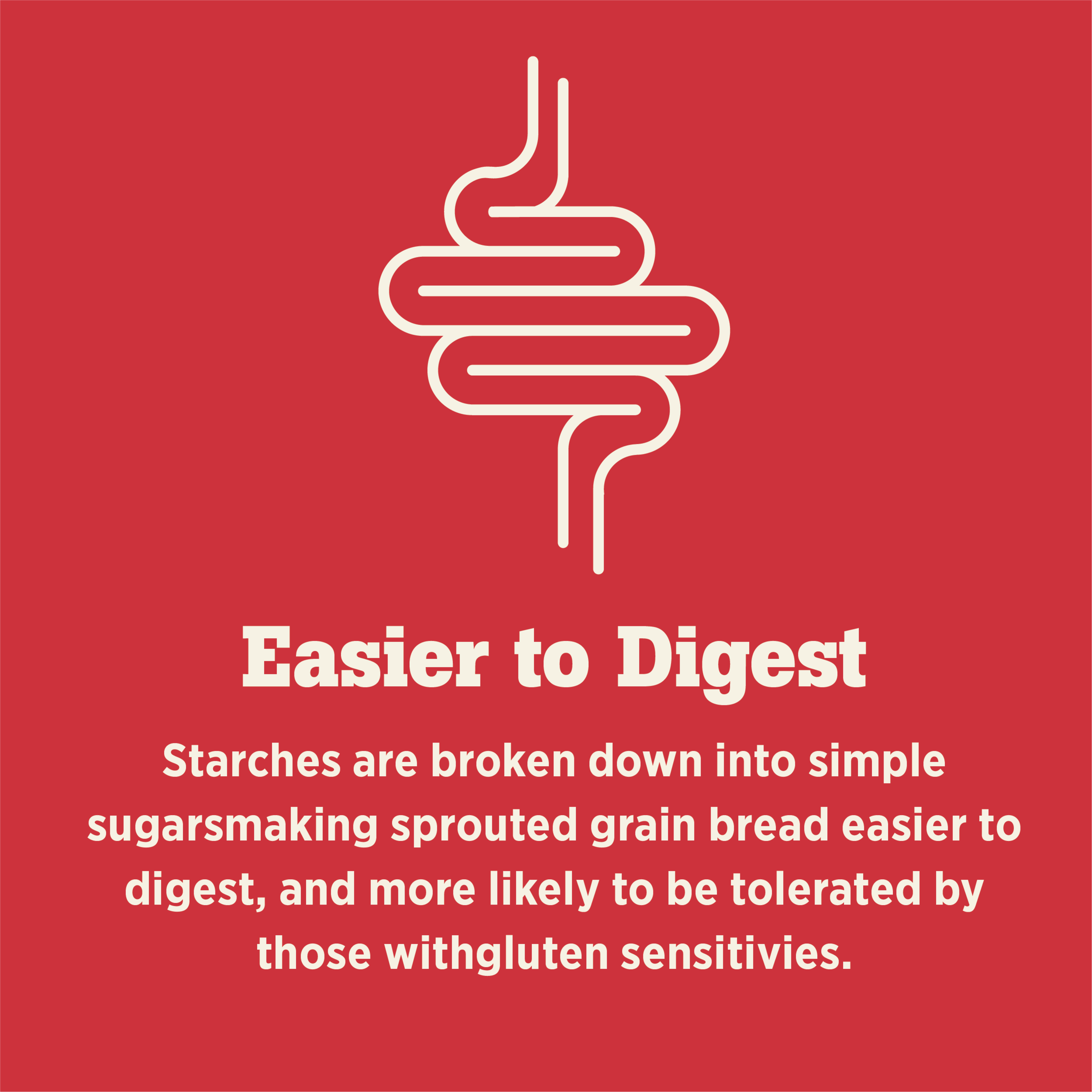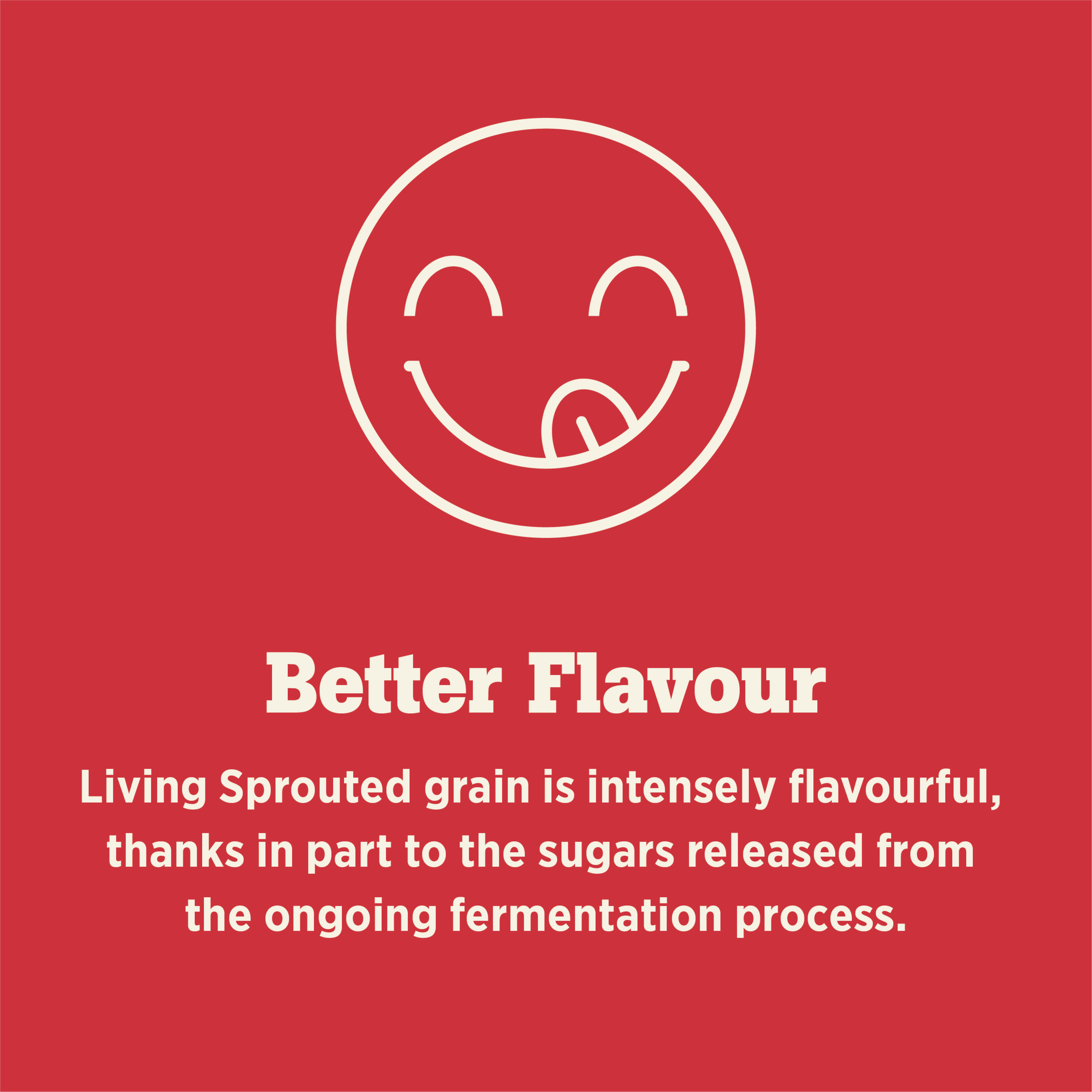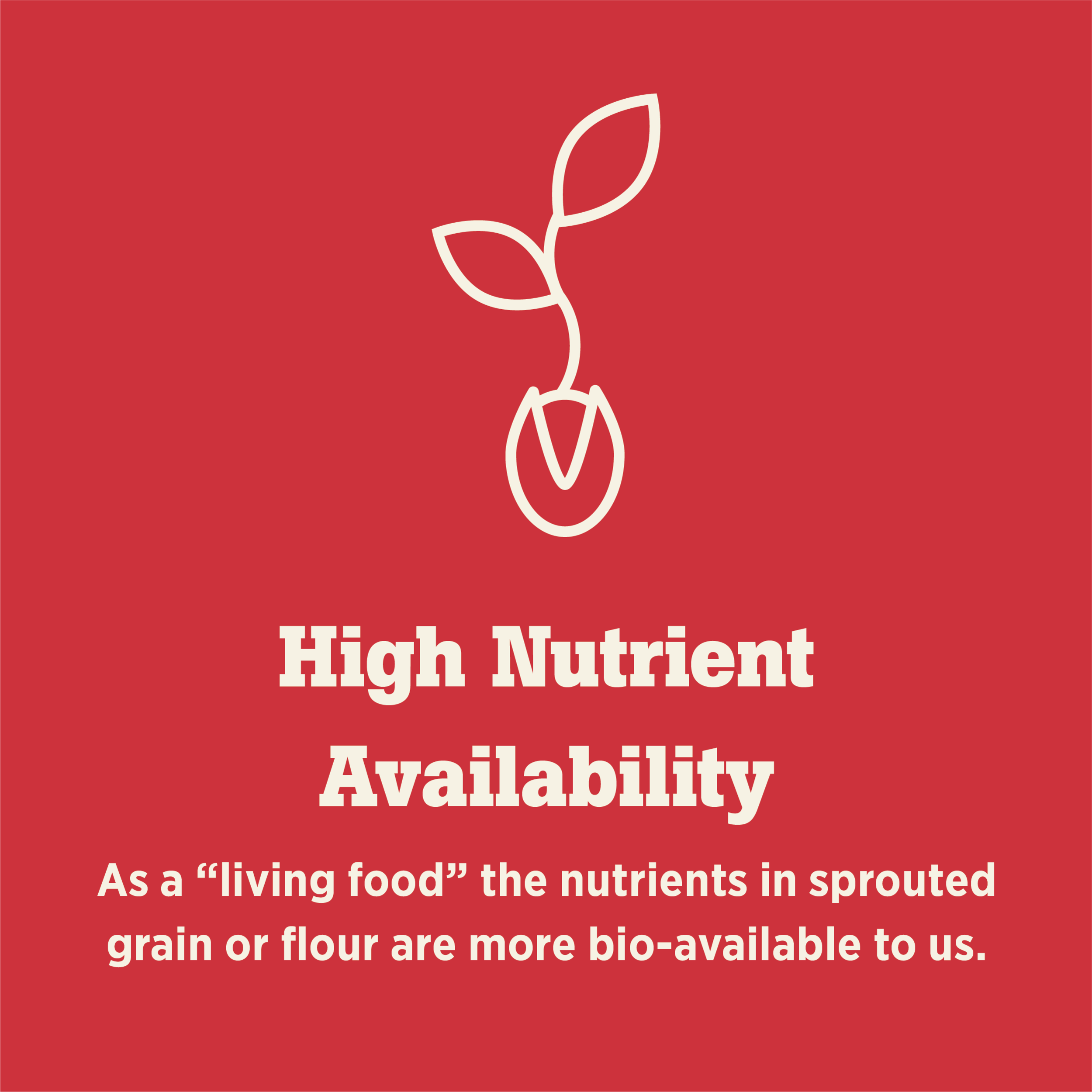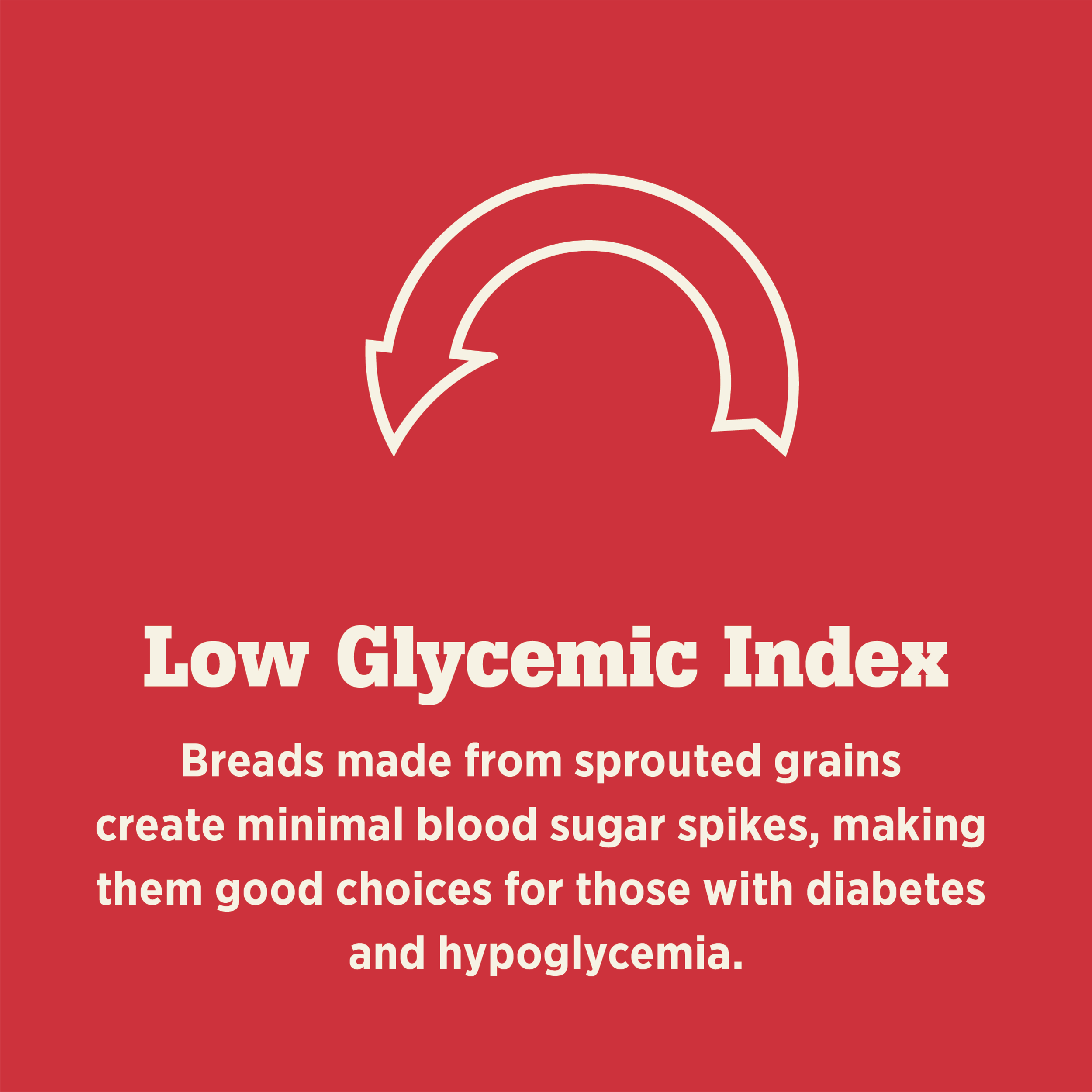
It’s easy to look at a seed—or a single grain—and think of it as something inanimate. Most people have no idea of all the nutrition and flavour that’s just waiting to be released. That’s why sprouting is so amazing!
What is Sprouting?
“Sprouting” happens when a grain germinates and transforms from a seed into a living plant, changing everything: its nutritional qualities improve, as does our body’s ability to digest it while absorbing all its goodness.
How did SProuting Begin?
The growing popularity of our sprouted flours and mixes is also a response to people’s desire to support more traditional methods of doing things. For instance, in earlier times, grain would often remain in the fields and begin to germinate until farmers could collect and store it. These farmers—unbeknownst to them—were producing grains that were more nutritious and digestible than early-harvested, non-sprouted grains. Dormant vitamins and minerals spring to life in order to nurture the sprout; this means that suddenly, a wealth of nutrients are now readily bio-available in both the sprouted grain and the flour it’s ground into.
What are The BENEFITS OF SPROUTED GRAIN?
How does Anita’s Sprout?
Today, Anita’s Organic Mill sprouts grains with purpose, and with passion. First, we allow the grain to stay moist long enough to wake it from its sleepy dormancy, thus beginning the process of germination. As the grain begins to grow, we stop it at the perfect time to retain the necessary baking qualities the grain will need. The sprouted grain is dehydrated and milled at a very low temperature, around 104˚F. It’s important to keep temperatures in this range so as not to destroy enzymes and nutrients. And what nutrients! Vitamin C is produced through sprouting. B vitamins are increased—especially B2, B5 and B6—as well as vitamins E and K, riboflavin and niacin. Levels of Beta-Carotene, the vitamin A precursor, increase dramatically. Phytic acid in the grain is neutralized, therefore allowing for easier absorption of calcium, magnesium, iron, copper and zinc.
Sprouted grains contain many active enzymes that aid in digestion, reducing bloating and intestinal discomfort. If you have sensitivities to unsprouted flour, you may be able to consume sprouted flour. While sprouted flour still contains gluten and wheat, if you have gluten/wheat sensitivities, you may find it much easier on your body.
Sprouted whole grain flours from Anita’s Organic Mill are an excellent choice for both the home and commercial baker, and can be used the same as our standard whole grain flours. Sprouted is a healthy new world for the adventurous baker to explore. Go forth, and discover sprouted!




